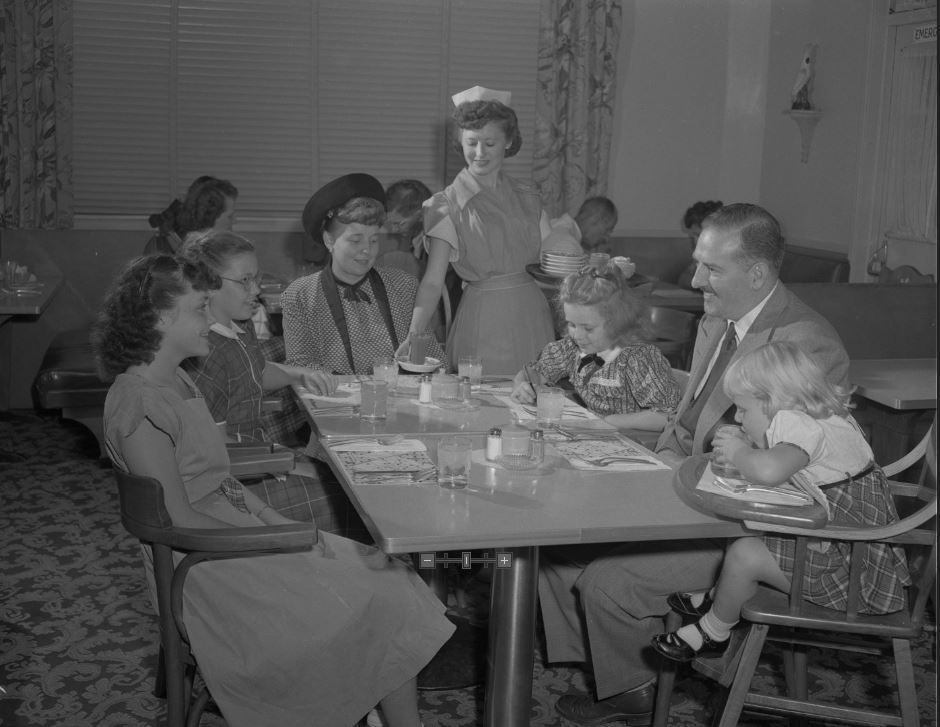This blog post was written by Christopher Babbitt, Processing Student Assistant. Christopher holds a Bachelor of Arts in History with a minor in Economics from George Mason University. He is currently pursuing an M.A. in History from George Mason University.
As a student of history, working in the archival field is like suddenly finding yourself employed at your favorite restaurant. Naturally, you’re used to looking at the front end of the enterprise and seeing the finished products. Customers are the ones who are served. Now on the back end, as the one who is doing the serving and preparation, it’s a strange shift in perspective. This is how I feel suddenly working in an archives.
As a historian, the finished collections are given to you for research, and what’s important and what isn’t jumps off the page. As an archivist, specifically as a processing assistant, determinations of importance or appropriateness aren’t choices to be made by you. Rather, the goal is to present the collection holistically, allowing scholars – who will eventually pick apart the materials – to perform more accurate and effective research.
The primary objective of a member of the processing team in Special Collections Research Center is to bestow ease of use for researchers. Limiting the leg work required by scholars to identify useful collections, and navigate their way through those collections are goals of paramount importance for archivists. Through means such as proper collection organization and quality metadata, ease of use is prioritized. Looking at it from the historian side, these things aren’t noticeable unless they’re done poorly. Navigating through a poorly organized and/or maintained collection is incredibly taxing. Meanwhile, a collection with poor metadata might not even show up in a search, much less describe the essential characteristics of the papers. Scholars are less likely to travel to an archives to examine materials if they don’t have a clue what’s in the collection, thus quality metadata is crucial. Done well, these particulars don’t even cross a historian’s mind.
Working as an archival assistant but studying to be a historian gives me a unique perspective. There are different priorities, goals, and needs of the two different occupations. Viewing research methods from both the front end (historian) and the back end (archivist) of the “restaurant” makes me more knowledgeable, more creative, and more experienced. Going forward, I feel more confident in doing research in archives with the experience I continue to earn at the Special Collections Research Center.
Featured image: Family of six eats at a Hot Shoppes restaurant, Oliver F. Atkins photograph collection C0036, Special Collections Research Center, George Mason University Libraries. The photograph is available digitally here.
Follow Special Collections Research Center on Social Media at our Facebook, Instagram, and Twitter accounts. To search the collections held at Special Collections Research Center, go to our website and browse the finding aids by subject or title. You may also e-mail us at speccoll@gmu.edu or call 703-993-2220 if you would like to schedule an appointment, request materials, or if you have questions. Appointments are not necessary to request and view collections.

